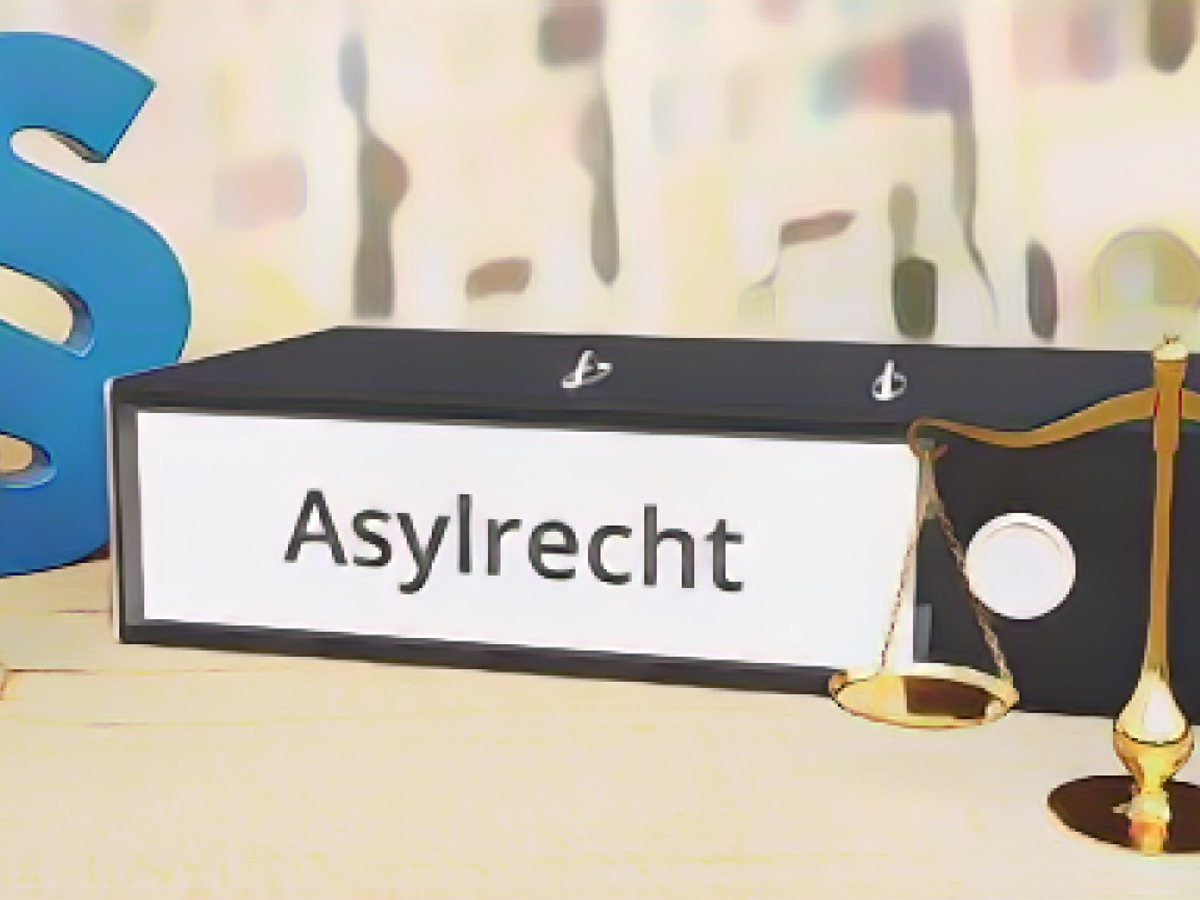Residence permit
As soon as you have registered as an asylum seeker, you will receive a certificate of arrival. Once you have officially applied for asylum, you will receive a residence permit. This residence permit is valid until your asylum procedure is completed. As long as you still have proof of arrival or a residence permit, there are many rules that you must observe. And there are many restrictions for you. Here you can find out what rights and obligations you have during your asylum procedure.
What do I need to know?
Asylum seeker benefits
Asylum seekers receive financial support from the state. This assistance is called asylum seeker benefits. You will receive food and drink, clothing and shoes, toiletries and household items. You also receive so-called "pocket money", which you can use to buy a SIM card, a bus ticket or other small items, for example. The state also pays for your accommodation.
Whether you receive food and drink, clothes and shoes, toiletries and household items directly or whether you receive money and can buy these things yourself depends on where you live. In the initial reception centers, you will usually receive everything directly. If you live in other accommodation or in an apartment, you will usually receive money. However, it is also possible that you will still receive some of the money directly and only receive part of the money for free disposal. Each federal state has its own regulations here.
How much money you receive depends, among other things, on whether you are married and/or have children. You will receive a monthly notification from the social welfare office stating how much you will receive. If you do not receive this notice, ask your case worker at the social welfare office about it. An advice center can tell you whether this notice is correct or whether the social welfare office has made a mistake. You can find an advice center near you on the Pro Asyl website.
Please note: As an asylum seeker, you will generally not receive child benefit or parental allowance. Exception: Turkish nationals who have been in Germany for 6 months and people from Algeria, Tunisia, Morocco, Bosnia, Kosovo, Serbia and Montenegro if they are working and paying social security contributions.
Medical care
Medical care varies depending on the length of your stay in Germany. Asylum seekers who have been in Germany for less than 18 months receive emergency treatment. Asylum seekers who have been in Germany for longer than 18 months receive regular statutory health insurance benefits. You can find out more about this in our chapter "Healthcare for refugees"
Work, training & study
As an asylum seeker, you are not allowed to work as a self-employed person. If you want to work as an employee, you need a work permit. You can find out whether and how to obtain this work permit in our chapter "Work permit".
You are allowed to study. You can find out more about this in our chapter "Applying to university". You may also start school-based training. You will need a work permit for in-company training. You can find out more about this in our chapter "Dual training".
Daycare & school
Your children generally have the right to a place in a kindergarten. The federal states have different regulations as to when a refugee child is entitled to a place in a nursery. You can find the regulations for your federal state on landkarte-kinderrechte.de. Or you can ask an advice center for advice. You can find out more about daycare in our"Daycare"chapter.
Children over the age of six must always go to school. The federal states have different regulations as to when a refugee child must start school. You can find the regulations for your federal state on landkarte-kinderrechte.de and in our"School" section. Or you can ask a counseling center for advice.
Integration course
You can find out whether you are allowed to take part in an integration course in our Integration course section.
Assignment & housing
When you register, the city in which you will live is determined. Your place of residence is not decided by the employees of the authority, but by a computer system that knows where there are still free places in initial reception facilities and which city is responsible for people from your home country. As a rule, you cannot do anything about this decision. If there is a very good reason why you have to live in a certain city (e.g. because your sick father lives there), ask a counseling center for advice. You can find an advice center near you at proasyl.de.
For the first few weeks or months, you will have to live in an initial reception center. This is accommodation for refugees who have just arrived in Germany. After 18 months at the latest, you will usually be sent to other accommodation. This can be another home. Or an apartment. This accommodation can also be in another city nearby. It is very difficult to do anything about this decision. If there is a very good reason why you have to live in a certain city (e.g. because your sick mother lives there), ask a counseling center for advice. You can find an advice center near you on the Pro Asyl website.
Asylum seekers who receive asylum seeker benefits are obliged to live in the place to which they were initially sent. This means that you cannot simply move to another city as long as you are still receiving asylum seeker benefits. If there is a very good reason why you have to move, you can submit a so-called redistribution application. An advice center can help you with this. You can find an advice center near you at proasyl.de.
In some federal states, asylum seekers are allowed to leave their accommodation and look for their own apartment. You can ask an advice center whether your federal state allows you to move into your own apartment. However, finding accommodation is very difficult. You can find out more about this in our chapter "Finding accommodation".
Traveling
In the first three months and as long as you are living in an initial reception center, you are not allowed to travel within Germany. This means that you are not allowed to leave your city. This regulation is called "Residenzpflicht". If you have to leave your city for an important appointment, you must have permission to do so. You can obtain this permit from the Foreigners' Registration Office. Only if you have appointments with authorities or a court do you not need permission. In this case, it is sufficient to notify the Foreigners' Registration Office and the Federal Office for Migration and Refugees (BAMF) in writing. If you leave your city without permission and are caught, you will have to pay a fine. If you are caught repeatedly without permission, you may be fined or imprisoned. A fine or prison sentence can be a problem for your future right of residence.
You are not allowed to travel abroad during your asylum procedure. You can find out more about this in our chapter"Traveling abroad as a refugee".
Important
If you move during the asylum procedure or are relocated to different accommodation, you must inform the immigration authority and the Federal Office for Migration and Refugees (BAMF) of your new address. If you forget to do this, you will not receive important mail and may miss an important appointment.
You can use this template to inform the BAMF of your new address if you move during your asylum procedure.
During the asylum procedure, you must observe many rules due to your residence permit. If you move during this time, it's essential to inform the immigration authority and the Federal Office for Migration and Refugees (BAMF) about your new address to avoid missing important mail or appointments.
After officially applying for asylum and receiving a residence permit, Turkish nationals who have been in Germany for 6 months and individuals from specific countries (Algeria, Tunisia, Morocco, Bosnia, Kosovo, Serbia, and Montenegro) may be entitled to child benefit or parental allowance if they are working and paying social security contributions.
Source: handbookgermany.de








